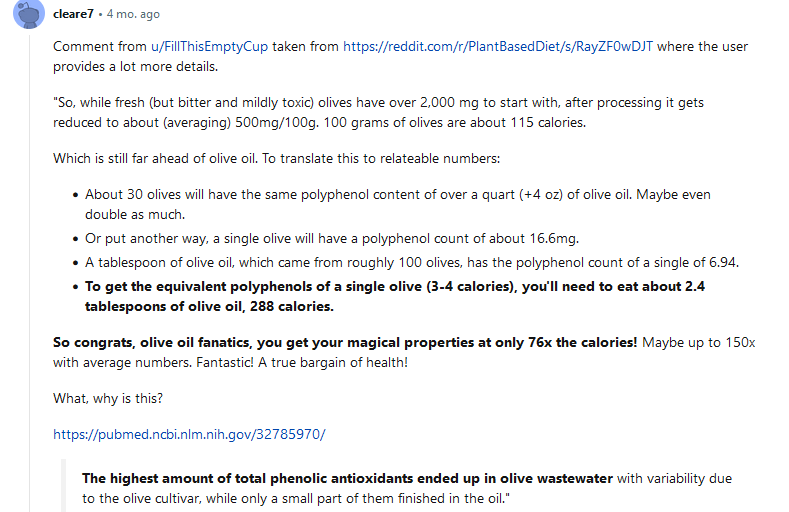Observational data with graphs where canola/seed oil consumption is shown along with obesity rates.
Mechanistic evidence of canola oil in vitro, vivo, mice, etc.
Processing, appeal to nature.
The evidence for canola oil is based on great data, human trials, cardiac causal risk factors, etc!
Although care must be taken in handling and processing of canola oil and other vegetable oils, canola oil is a safe and healthy form of fat that will reduce blood LDL cholesterol levels and heart disease risk compared to carbohydrates or saturated fats such as found in beef tallow or butter. Indeed, in a randomized trial that showed one of the most striking reductions in risk of heart disease, canola oil was used as the primary form of fat. [8] Whether using cold-pressed canola oil provides some small additional benefit is not clear.
Citing this study:
Mediterranean alpha-linolenic acid-rich diet in secondary prevention of coronary heart disease
In a prospective, randomised single-blinded secondary prevention trial we compared the effect of a Mediterranean alpha-linolenic acid-rich diet to the usual post-infarct prudent diet.
After a first myocardial infarction, patients were randomly assigned to the experimental (n=302) or control group (n=303). Patients were seen again 8 weeks after randomisation, and each year for 5 years. The experimental group consumed significantly less lipids, saturated fat, cholesterol, and linoleic acid but more oleic and alpha-linolenic acids confirmed by measurements in plasma. Serum lipids, blood pressure, and body mass index remained similar in the 2 groups. In the experimental group, plasma levels of albumin, vitamin E, and vitamin C were increased, and granulocyte count decreased. After a mean follow up of 27 months, there were 16 cardiac deaths in the control and 3 in the experimental group; 17 non-fatal myocardial infarction in the control and 5 in the experimental groups: a risk ratio for these two main endpoints combined of 0·27 (95% Cl 0·12-0·59, p=0·001) after adjustment for prognostic variables. Overall mortality was 20 in the control, 8 in the experimental group, an adjusted risk ratio of 0·30 (95% Cl 0·11-0·82, p=0·02).
https://www.thelancet.com/journals/lancet/article/PIIS0140-6736(94)92580-1/fulltext

